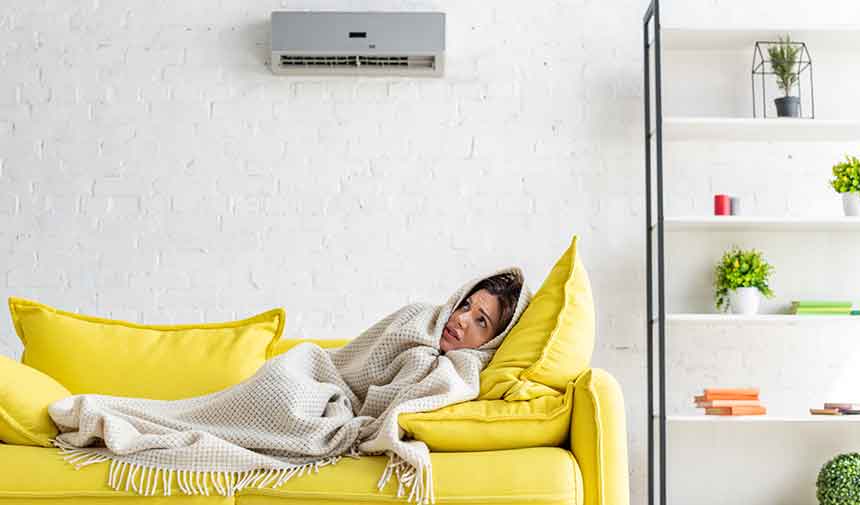The use of air conditioning is very important for a comfortable sleep, especially in hot summer months. However, leaving the air conditioner on while sleeping can have various effects on health and comfort. In this article, we will examine the advantages, disadvantages and points to consider when keeping the air conditioner on while sleeping.
Advantages of using air conditioning while sleeping
Comfortable Sleep Environment:
Air conditioning provides a cool and comfortable sleeping environment by controlling the temperature of the room. Especially on hot summer nights, sleeping in a cool room regulates body temperature and provides better sleep quality.
Regulating Air Humidity:
Air conditioning provides a drier and more spacious air by reducing the humidity in the room. High humidity can cause discomfort while sleeping and cause sweating. The use of air conditioning prevents such problems.
Air Circulation:
Air conditioning provides fresh air by increasing air circulation in the room. This prevents air quality from decreasing in a closed environment and provides a cleaner sleep environment.
Disadvantages of Using Air Conditioner While Sleeping
Dryness and Irritation:
Continuous operation of the air conditioner can dry the air and cause dryness of the skin, eyes and respiratory tract. This can be particularly uncomfortable for people with sensitive skin or allergic constitution.
Muscle and Joint Pain:
Air conditioning blowing directly on the body can cause muscle and joint pain. Especially the body that stays in the same position overnight may feel stiff and stiff in the morning.
Air Quality Problems:
If the filters of the air conditioner are not cleaned regularly, the air quality in the room may decrease. Dirty filters can cause allergens such as bacteria, dust and pollen to circulate in the room.
Points to Consider
Temperature Setting:
Instead of setting the air conditioner to a very low temperature, it is important to choose an ideal sleeping temperature. Generally, a temperature between 22-24 degrees is suitable for both a comfortable and healthy sleep.
Use of a Timer:
You can use a timer to prevent the air conditioner from running continuously throughout the night. Setting the air conditioner to switch off a few hours after falling asleep saves energy and reduces negative effects such as dryness.
Air Flow Direction:
Make sure that the air conditioner does not blow directly on your body. You can provide an indirect coolness by directing the air flow to the ceiling or wall. This helps prevent muscle and joint pain.
Use a humidifier:
To compensate for the dryness caused by air conditioning, you can use a humidifier in the room. This increases the humidity in the air and prevents dry skin and respiratory tract.
Filter Cleaning:
Regularly cleaning or replacing the filters of the air conditioner is important to keep the air quality high. Clean filters prevent the spread of allergens and bacteria.
Conclusion
Keeping the air conditioner on while sleeping can provide a comfortable and healthy sleeping environment when the right precautions are taken. Correct temperature setting, use of a timer, careful adjustment of the air flow direction and regular filter cleaning minimise the negative effects of the air conditioner. In this way, you can have a cool and comfortable sleep on hot summer nights and protect your health at the same time.



